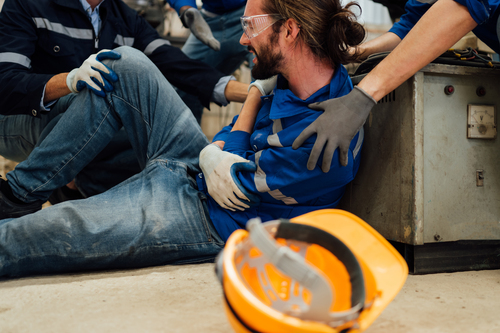Tampa Adoption Lawyer
Like having a biological child, adoption is a permanent decision, and for this reason, each adoption needs to be made ironclad to avoid difficulties later on in the child’s life. The only real way to make things permanent in today’s society is via the legal system. While you could always take on the legal system on your own and hope that the adoption goes through without a problem, it would be in your best interests, and the interests of your soon-to-be-child, to retain the help of an experienced Tampa adoption lawyer as soon as you make the decision to adopt. The right lawyer can help you vet adoption agencies, mediate between yourselves and prospective birth mothers, draft the necessary legal contracts, ensure that proper consent forms are filed, and more.
If adopting is a part of your life plan, retain the legal assistance of a skilled Tampa adoption lawyer. At The Pawlowski//Mastrilli Law Group, we strive to help individuals and couples alike build their families in the least stressful way possible. If you believe that you are ready to adopt, reach out to our Tampa family law firm today to discuss eligibility requirements, application requirements, and other essential information regarding the process.
Who Can Adopt a Child?
Adopting a child can be an exciting yet complicated task, and you may be wondering if you are even eligible to adopt a child. Different types of adoptions will have different sets of qualifications that an adoptive parent must meet. However, the number one thing that most Florida judges consider is a person or persons’ ability to provide a lifelong commitment to loving and caring for a child. If you are interested in adoption, it is imperative that you discuss your goals with a skilled Tampa adoption lawyer, and to gain as much insight into the process and its requirements prior to filing for adoption.
Do You Need to Be Married?
Individuals have the same rights to adopting children as married couples. However, some agencies may have certain requirements that the individual or married couple must meet before adopting a child. For example, some adoption agencies have requirements on the length of time a couple must be married before adopting.
Are There Financial Requirements for Adoption?
Every situation is unique, but financial security is an important consideration for adoption agencies. Income will be evaluated as part of the home study before a prospective adoptive parent will be able to adopt, but income alone will not disqualify someone from being an adoptive parent. In short, you do not need to be wealthy in order to be an adoptive parent in Florida.
What If I Have Been Convicted of a Felony?
If you do happen to have a criminal record, the adoption agency will need to review this as part of the home study. While a felony conviction will not necessarily disqualify you, you will not be able to adopt if your criminal record poses a threat to the child. Such cases would include convictions for child abuse, abandonment, neglect, drug-related offenses, and violent offenses. Each member of a household may be subject to a background check before a child can be adopted.
Can Homosexual Individuals or Couple Adopt?
Yes. A law that prevented both LGBTQ individuals and same-sex couples from adopting was ruled unconstitutional in 2010, and following the legalization of same-sex marriage, anyone is allowed to adopt a child regardless of sexual or gender identity, so long as they meet the other requirements outlined by Florida laws and adoption agencies.
Is There an Age Limit?
Florida law does not place an age limit on prospective adoptive parents, but some agencies may have their own age requirements. In general, an adoption agency will likely require the prospective adoptive parent to be at least 21 years of age.
Health Requirements
As part of the home study, you will need to provide medical records to ensure that you are physically and mentally capable of caring for a child. Any severe mental illness, such as Dissociative Identity Disorder, may prevent you from adopting a child. Similarly, a physical illness or disability that prevents you from providing for a child will likely be grounds for disqualification.
Emotional Requirements
You will need to be able to prove that you are emotionally ready to adopt a child. This may mean resolving any grief or trauma from a miscarriage or infertility, agreeing with a spouse about your adoption goals, and showing a readiness to commit to caring for a child and maintaining a parental relationship.
Types of Adoption
An adoption is the legal establishment of a parent-child relationship between a child and an adult guardian, but if you are considering an adoption, you should be aware of the different types of adoption recognized in the state of Florida. The Tampa adoption lawyers at The Pawlowski//Mastrilli Law Group are familiar with the different types of adoptions recognized by the state and are prepared to answer any questions or concerns you have regarding the process. That said, here is a brief overview of these different types of adoptions in Florida.
Agency Adoptions
Agency adoptions involve an intermediary agency, either public or private, that places the child with a suitable parent or set of parents. A public agency will typically have the responsibility of placing children who have become wards of the state due to abandonment, abuse, or orphanage, whereas private agencies are run by charitable organizations and will place children whose parents have willingly given up their children for adoption.
Independent or Private Adoptions
In an independent adoption, no public or private intermediary agency is present. These types of adoptions are generally arranged between the birth parents and the adoptive parents or with the help of an attorney, doctor, or cleric. Independent adoptions are legal in the state of Florida but may be carefully regulated, and it is most often necessary for an attorney to assist the adoptive parents with court paperwork.
Identified Adoptions
In some cases, a birth mother and adoptive parent will find each other and seek the assistance of an adoption agency in completing the process. Adoptive parents who find themselves in this situation will be able to avoid the waiting list that is usually involved in agency adoptions but will be able to utilize counseling services and legal skill that agencies offer.
International Adoptions
If a prospective adoptive parent or set of parents chooses this route, they will be adopting a child who is a citizen of a foreign country provided that they meet the adoption requirements of both countries. The parent(s) will need to acquire an immigration visa for the child, but the child will be granted full U.S. citizenship upon entrance to the United States.
Stepparent Adoptions
Following a divorce, one of a child’s parents may get remarried. If the stepparent wishes to adopt his or her spouse’s child, the step parent will need to file a petition with the court. Provided that the child’s other parent consents to the adoption or the court decides that no consent is necessary, then the process should be fairly simple.
Kinship Adoptions
Kinship adoptions occur when a family member who is not the parent of a child wishes to adopt. These adoptions are generally easy to accomplish, provided that the relative is qualified to adopt according to Florida law. Should the child have siblings who are not adopted by the relative, the child will be granted permission to contact his or her siblings.
Adult Adoptions
Generally, these occur as stepparent adoptions that the family didn’t perform until after the child has reached adulthood. However, sometimes an adult will adopt another adult, who is at least ten years younger, in order to treat the adult as a child for inheritance purposes. These types of adoptions may be subject to some regulation in order to prevent elder abuse.
What About Same-Sex Couples?
Even before same-sex marriage was legalized in Florida, homosexual individuals could adopt a child, but their partners could not petition for a stepparent adoption because Florida law requires that the stepparent be the spouse of the child’s parent. However, following the legalization of same-sex marriage, the two individuals of a couple can be considered spouses, thereby making it possible for a stepparent to petition for adoption.
Adoption Procedures
The path to adoption typically looks the same across the nation, but states do have their unique laws and regulations by which families and birth mothers must abide. Whether you opt for an agency adoption or an independent adoption, it would be in your best interests and the best interests of your future child to work with a skilled Tampa adoption lawyer from the very beginning of the process until the end, when all legalities are finalized. Failure to work with an experienced lawyer puts you at risk of making a crucial mistake that can result in an adoption that falls through, or at least one that becomes needlessly complex. To ensure that your adoption goes as smoothly as possible, contact the Tampa adoption lawyers at the The Pawlowski//Mastrilli Law Group today.
The 9 Steps of a Successful Florida Adoption
The adoption process typically begins with an assessment that helps you determine whether or not adoption is right for you and a background check, and ends with finding a match, placement supervision, and finalization. If you are about to embark on the adoption process and want to know what to expect, here are the nine steps of the average Florida adoption:
- Contact
First and foremost, you need to contact an adoption agency or social worker with which to work. The agency or state worker can get you into the system and started on the adoption process.
- Orientation
During orientation, you will go through a two-hour presentation that will give you a chance to better understand what you are in for and to decide if adoption is right for you. Additionally, you will have a chance to meet and talk with veteran adoptive parents and counselors to gain a better understanding of the process.
- Preparation Course
Your counselor will guide you toward a number of prep courses and training seminars that will prepare you for life as an adoptive parent. These courses are mandatory, as they are designed to give you the chance to assess yourself and your family to determine if you are ready for such a big commitment.
- Home Study
During the home study, the state and federal governments will conduct background checks on all adults living in the home. You will also be required to supply references from your employer, character references from individuals who know you well, and letters from school officials (if you have children in school). The goal of the home study process is to make sure that you can provide the child with a safe and secure home.
During this time, an adoption worker will visit your home on a weekly basis to talk with you and other members of your family. The worker will likely ask you questions about your reasons for wanting to adopt, your financial situation, the strength of your marriage, your parenting style, etc. It is important to be completely open and honest during this phase, as everyone involved simply wants to ensure a successful placement.
- Approval
If the home study process goes well, your paperwork will be sent for approval. You will be notified as soon as your application is accepted.
- Finding a Match
This will be the second most exciting and likely the most stress-inducing aspect of the process. You will continue to look for an available child during support meetings and on the web. There may also be picnics and other events in which children who are available for adoption will be in attendance. If you think you have found a match, notify your adoption worker right away.
- Match!
Once you have identified the child who appears to be the perfect match, it is time to learn as much about the child as possible. You can do this by talking to the adoptive parents, foster parents, and reading the agency’s records on the child. This step is crucial, as you want to ensure that the child is really the right one for you, and that you and he or she will have a strong, unbreakable relationship.
- Placement Supervision
Once you feel comfortable that you know the child and that he or she will do well in your home, the child will be placed. Once placed, an adoption worker will make monthly visits in order to assess the child’s situation, see how well he or she is adjusting, and determine whether or not additional services are necessary. Once this period ends, the counselor will provide your Tampa adoption attorney with a “Consents to Adoption” form, which he or she will look over on your behalf.
- Finalization
Once the “Consents to Adoption” form has been signed and submitted, the child will live with you for six months before the adoption can be officially finalized. Once this six months is up, your adoption lawyer will schedule a hearing before a judge, who will make the process officially binding.
Common Obstacles Adoptive Parents Face
Adoption comes with unique challenges, many of which can be emotionally and financially draining. From birth mothers revoking consent to fathers popping up out of the woodwork, there are several scenarios that play out more often than you might think during the standard adoption. Having the right legalities in place can help you avoid these issues altogether, and a skilled lawyer can help you navigate those that you cannot avoid. Some issues that our team at The Pawlowski//Mastrilli Law Group has dealt with include the following:
-
Putative Fathers: Many adoptees are the children of single mothers who do not know the fathers’ identities. If a man does show up and claim the child as his, he would be considered a “putative father.” Putative fathers may beable to establish parental rights, but only if they followed through with certain legalities beforethe birth mother filed the adoption paperwork. Moreover, the father must show that he has earned parental rights and that his interference is for the best interests of the child.
-
Open Adoption:Open adoptions are great in that they remove all the unknowns that typically come with closed adoptions. However, as the child grows older, he or she may be forced to make decisions most children should never have to make. The right agreement can help avoid these issues altogether.
-
Multiethnic Issues:Believe it or not, some adoptions are denied or delayed because of “mismatched races.” This is because there are pockets of the adoption community that believe mixed-race adoptions are a means of diluting the cultural and ethnic heritage of an adopted child. Thanks to the Multi-Ethnic Protection Act (MEPA) of 1994, no agency that receives state funding may deny or delay an adoption because of race or ethnicity. That said, what the law states is not always what happens. If you run into an issue regarding race or ethnicity, an adoption lawyer can help you fight for your rights to your child and ensure that the agency does not act in such a manner in the future.
Why Work With a Lawyer
There are dozens of reasons to work with an experienced adoption lawyer, three of which are mentioned above. The right attorney can help you navigate common legal issues adoptive parents face and preserve the integrity of your future family. Aside from helping you deal with the aforementioned issues, however, you can enjoy the following benefits by working with an attorney:
- The right lawyer can help you navigate state laws with confidence;
- The right lawyer can help you avoid common complications;
- If you wish to pursue an independent adoption, the right attorney can make the process much easier on both you and the birth mother;
- A knowledgeable lawyer can provide answers to your most pressing questions and concerns; and
- A knowledgeable attorney can handle all the legal documents, make sure all consent forms are accounted for, and take care of all legalities while you focus on preparing for the new addition to your family.
Consult With a Knowledgeable Tampa Adoption Lawyer Regarding Your Needs Today
Whether you wish to adopt a child or adult, want to be adopted by another adult, or would like a significant other to adopt your own child, there are certain laws and regulations that you need to adhere to. Those regulations vary depending on the type of adoption you wish to complete. The Tampa adoption lawyers at The Pawlowski//Mastrilli Law Group can assess your wants and help you determine what you need to do to make those wants a reality. Contact our law firm today to get started.











